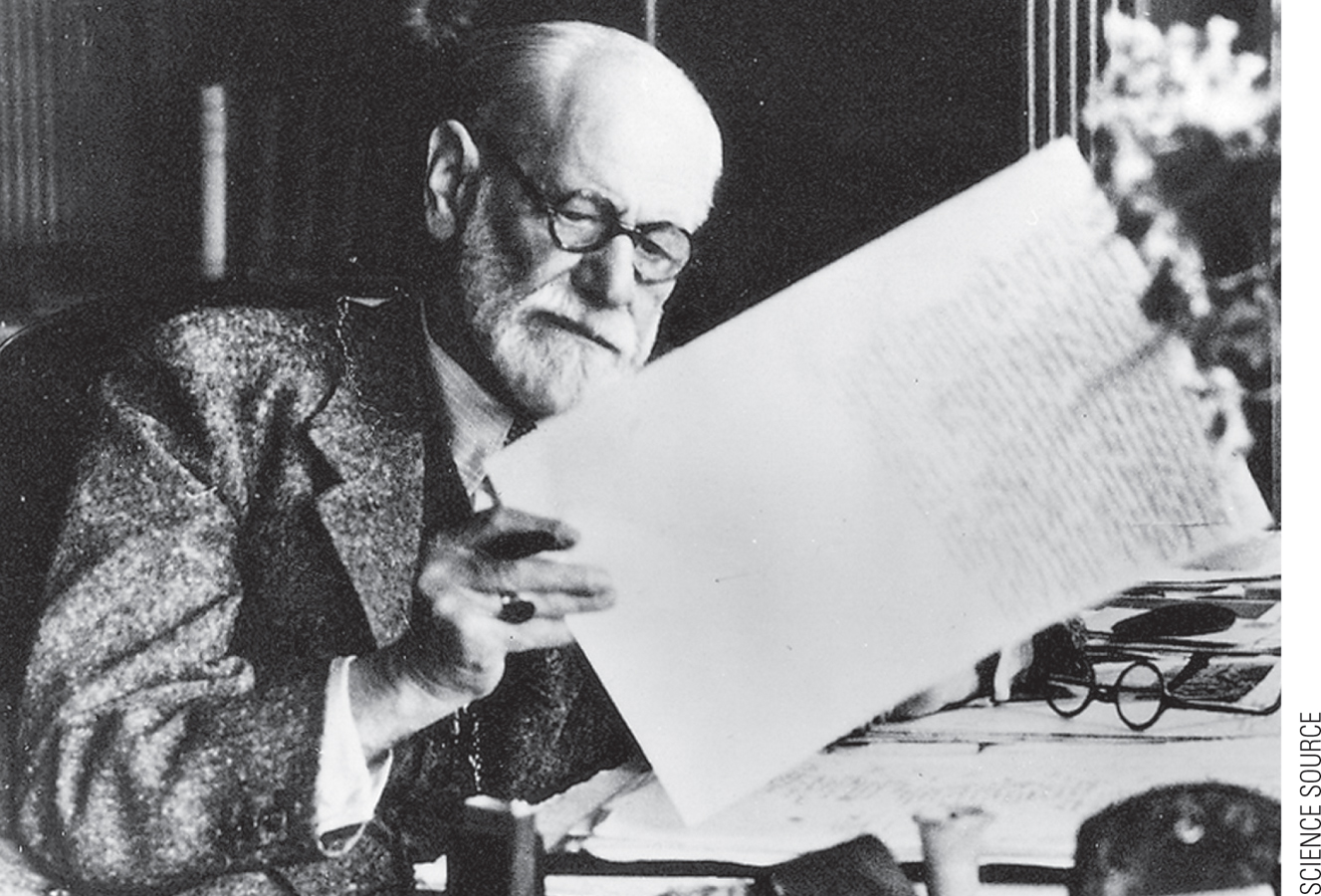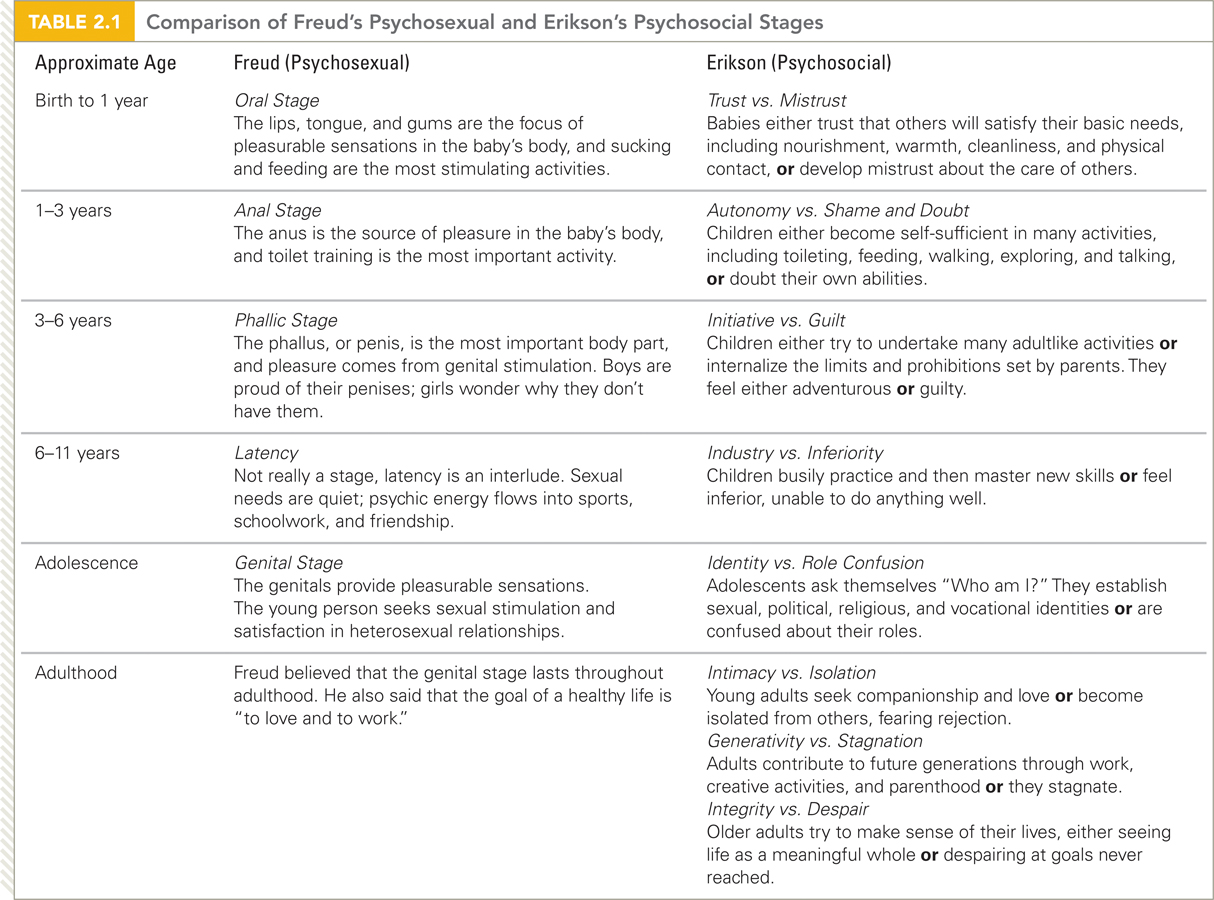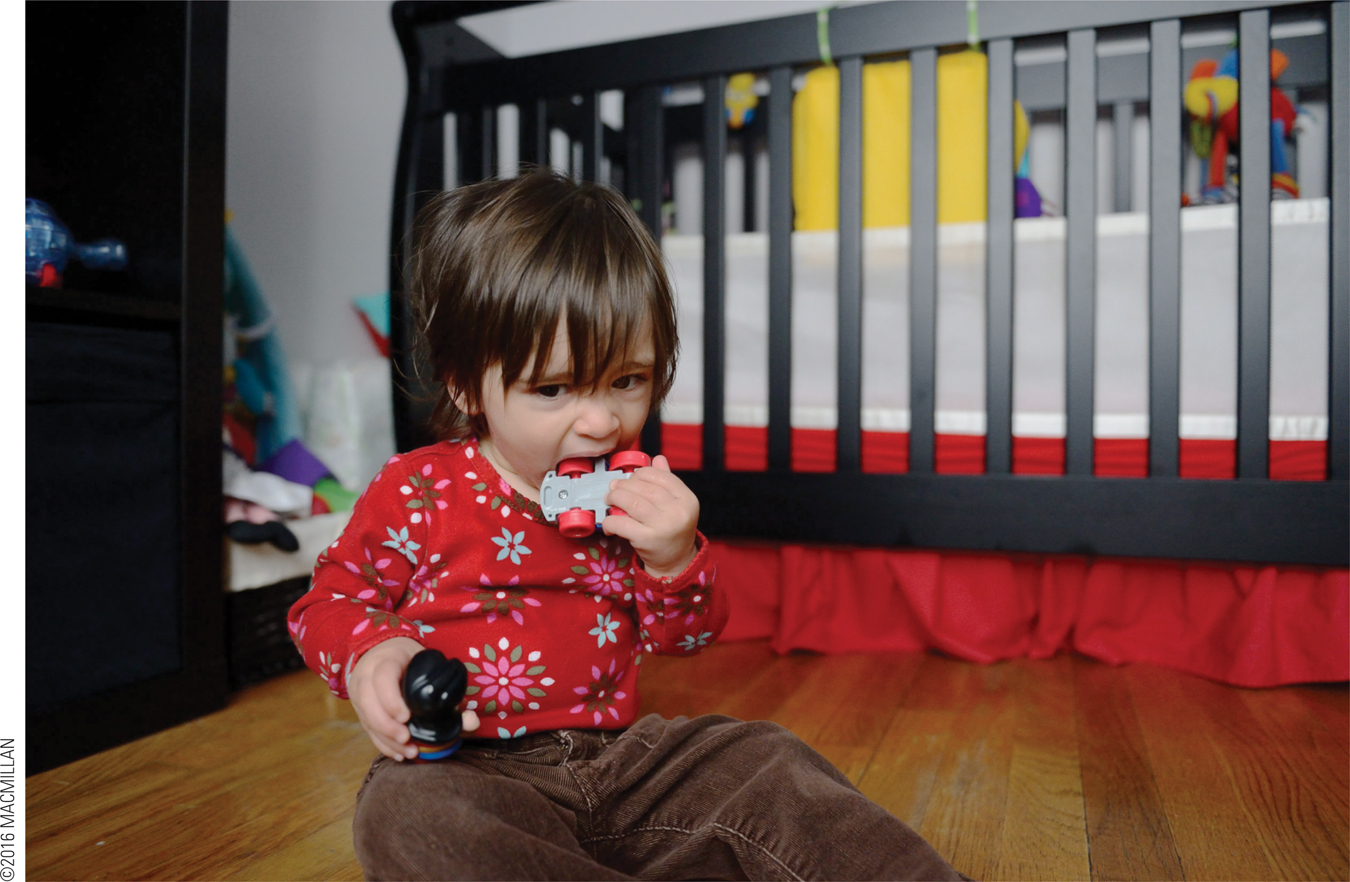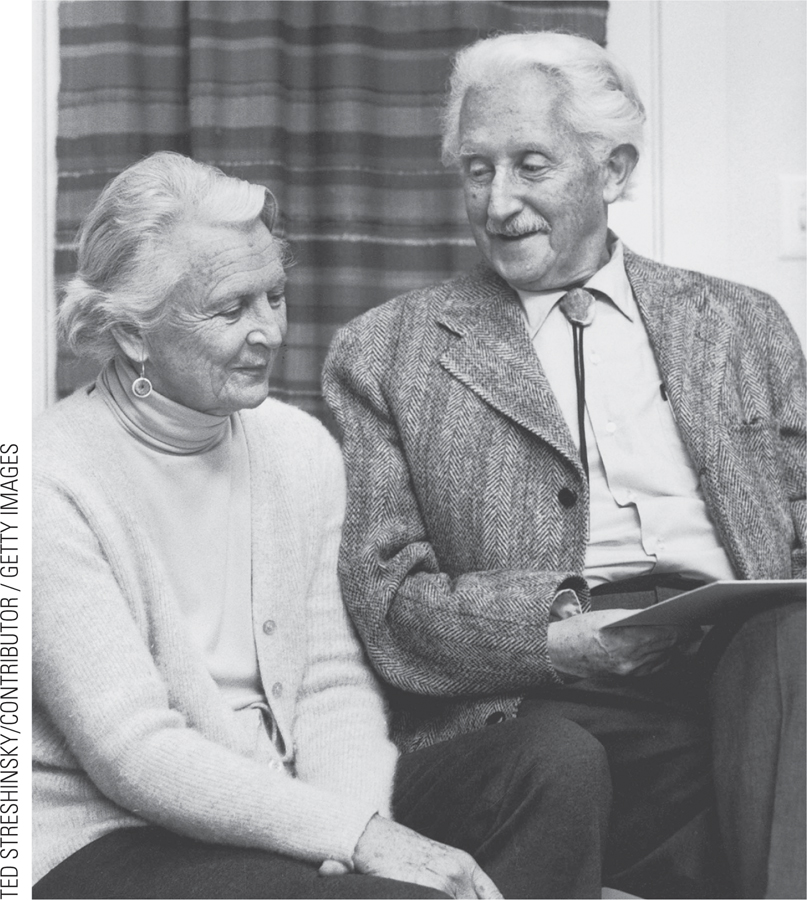Psychoanalytic Theory: Freud and Erikson
Inner drives, deep motives, and unconscious needs rooted in childhood—
Freud’s Ideas

Psychoanalytic theory originated with Sigmund Freud (1856–
According to Freud, development in the first six years of life occurs in three stages, each characterized by sexual interest and pleasure arising from a particular part of the body. In infancy the erotic body part is the mouth (the oral stage). In early childhood it is the anus (the anal stage). In the preschool years it is the penis (the phallic stage), a source of pride and fear among boys and a reason for sadness and envy among girls. Then, after a quiet period (latency), the genital stage arrives at puberty, lasting throughout adulthood. (Table 2.1 describes stages in Freud’s theory.)

Freud maintained that sensual pleasure (from stimulation of the mouth, anus, or penis) is linked to major developmental stages, needs, and challenges. During the oral stage, for example, sucking provides not only nourishment but also erotic joy and attachment to the mother. Kissing in adulthood is a vestige of the oral stage. Next, during the anal stage, pleasures arise from self-
One of Freud’s most influential ideas was that each stage includes its own struggles. Conflict occurs, for instance, when mothers try to wean their babies (oral stage), toilet train their toddlers (anal stage), deflect the sexual curiosity and fantasies of their 5-

41
Freud did not believe that new stages occurred after puberty; rather, he believed that adult personalities and habits were influenced by what happened in childhood. Unconscious conflicts rooted in early life may be evident in adult behavior—
Erikson’s Ideas
Many of Freud’s followers became famous theorists themselves, Carl Jung, Alfred Adler, and Karen Horney among them. They acknowledged the importance of the unconscious and of early childhood experience, but each of them expanded and modified Freud’s ideas. For scholars in child development, one neo-

Erikson described eight developmental stages, each characterized by a particular challenge, or developmental crisis (summarized in Table 2.1). Although Erikson named two polarities at each crisis, he recognized a wide range of outcomes between those opposites. Typically, development at each stage leads to neither extreme but to something in between.
42
In the stage of initiative versus guilt, for example, 3-
As you can see from Table 2.1, Erikson’s first five stages are closely related to Freud’s stages. Erikson, like Freud, believed that problems of adult life echo unresolved childhood conflicts. He thought the first stage, trust versus mistrust, was particularly crucial. For example, an adult who has difficulty establishing a secure, mutual relationship with a life partner may never have resolved that first crisis of early infancy, trust versus mistrust.
Every stage echoes throughout life. For instance, in late adulthood, one older person may be outspoken while another avoids saying anything because each resolved the initiative-
In two crucial aspects, Erikson’s stages differ significantly from Freud’s:
Erikson’s stages emphasized family and culture, not sexual urges.
Erikson recognized adult development, with three stages after adolescence.
Especially for Teachers Your kindergartners are talkative and always moving. They almost never sit quietly and listen to you. What would Erik Erikson recommend?
Erikson would note that the behavior of 5-
SUMMING UP Both Freud and Erikson thought unconscious drives and early experiences form later personality and behavior, but they differed on the origins of those drives and experiences. Freud believed development depended on three psychosexual stages that impacted later habits and personality, not only in the next two periods (latency and genital) but lifelong. Conflict between the child’s impulses and the parents’ restrictions was inevitable, forming personality. On the other hand, Erikson’s eight psychosocial stages were characterized by developmental crises resolved through the individual’s relationship to family, and culture, a process that continued lifelong.
WHAT HAVE YOU LEARNED?
Question 2.4
ENgv9AotSPXzPYYpzvhoxXYpuRuwPnzSiH9WkX2xBLt1IHgkLlwZ3pKUzmXwxKynIpMpFg==Unconscious drives and motives influence every aspect of human thinking and behavior.Question 2.5
cmSlekXLt3liQtJrR+cLHGgeaoHFOdNL2mZlG5LAqjiI7ZduFIch8PUrYGVcZWRa5DKBSXLSayMatr7IGcCxQxhQEWpdb6RzThe oral stage is the mouth, the anal stage is the anus, and the phallic stage is the penis. Freud believed that the lack of a penis caused girls to develop penis envy.Question 2.6
m0MgKhBb+RvYiVZmQvFbwV+w8bgLozGn+HYboFQ7izn0Tzxr1TdMjG1qT9DgvvTHhxnZzV6M7NqiDTfEbW948SX9UQoACpxy9ftvn5DrUt+lrJQR7uaLPR/6WPnMx9OsErikson thought the first stage, trust versus mistrust, was particularly crucial for all later relationships. For example, an adult who has difficulty establishing a secure, mutual relationship with a life partner may never have resolved that first crisis of early infancy, trust versus mistrust.Question 2.7
+WX//7qhf/4i+ifSfHUKz5YtxKgF3d3hqOi+nWRA+Jjnev3/kHssZDRNK0J9/OdwHBuJ7UJazlr/Bz/Eyj6vyRURKhs=Erikson's theory focused on psychosocial stages of development—which included the environment in which a child is raised— and did not put much emphasis on sexual development. His theory was also the first to cover the entire life span. Freud's theory was about psychosexual stages of development and ended with adolescence.